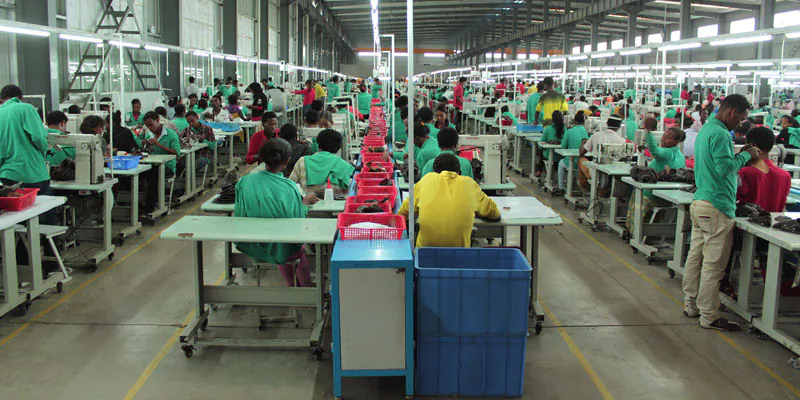The supplier selection process is not a simple one. From the time you receive an RFQ, to your initial meeting with a potential supplier, getting to that point is difficult. You need to make sure you are doing everything you can to go through the five crucial stages of the supplier selection process. The supplier selection process is essential for making sure your business is using the best suppliers possible and making sure that your reputation and integrity stay intact. Supplier risk assessment is also an often overlooked aspect of the supplier selection process and not something you want it to ignore in 2023.
The process of choosing a supplier can be a long and arduous one – but it doesn’t have to be. In this article, We are going to outline 5 crucial stages in the supplier selection process in 2023 based on our experiences in supply chain management.
The Ultimate Supplier Selection Matrix in 2023
This article will go through how to perfect your supplier selection process in 5 easy steps.
Stage 1: Define your needs
The first step in developing a process for supplier selection is to determine what you need. You should first define what you need from your suppliers, and then find suppliers who can meet those needs. You can do this by interviewing potential suppliers, asking them questions about their services or products, and asking them to provide an estimate for their services or products.
This includes the products and services you will need, as well as the specific requirements for each item. For example, if you are looking for a supplier of raw materials, you will need to make sure they have an adequate supply of those materials at all times. It’s also important that they can provide these materials in the quantities and timeframes that are required by your business model.
Selecting suppliers can be tedious, expensive, and time-consuming. BizVibe helps businesses find the right suppliers to help them grow.
Discover how you can simplify your supplier selection process in one easy solution with BizVibe.
Stage 2: Create a shortlist of candidates.
Once you’ve identified the roles you want to fill, it’s time to create a shortlist of candidates. This is where the work begins.
You’ll need to find people who have the skills and experience you need. If you’re hiring for a technical role, it could be very difficult to find someone with those skills in your local area. In this case, look further afield by using online job boards, social media, and professional networks.
You might also want to consider hiring remote workers, who live in another city or even another country but work from home or an office near where they live. It’s not as uncommon as you’d think!
Stage 3: Select and meet with finalists.
After narrowing down your list, it’s time to choose the best candidate for your organization. Consider the following:
Interview them in person or over Skype or Zoom. It’s important to get a sense of how well you’ll work together, so don’t depend solely on their résumé or cover letter. You should also evaluate their ability to communicate effectively and answer questions clearly and concisely.
Ask about their management style and approach to conflict resolution, as well as how they would handle various situations in the workplace. Be sure to ask open-ended questions that require more than a yes or no response, such as “Tell me about a time you were faced with an ethical dilemma.”
Stage 4: Create a formal request for proposal (RFP).
Now that you have a clear idea of the supplier selection process and what you need and the potential vendors who could provide it, it’s time to create an RFP. An RFP is a formal document that outlines what you need and asks each vendor to respond by providing all relevant information.
The goal of the RFP process is to help you find vendors who can meet your needs, so make sure to include everything necessary for vendors to submit bids. Your RFP should include:
A list of all services required. This includes any professional services, such as legal or accounting, as well as general office supplies, equipment, and furniture.
Detailed descriptions of each service or product required, including quantity and quality standards. For example, if your office needs copiers with duplex printing capabilities or tablets for employees on the go, be sure to include these details in the RFP so vendors can accurately quote prices based on your specific requirements.
A timeline for delivery of goods or services once they’re ordered — this helps ensure that everyone knows when they should start work so there aren’t any surprises later down the road when vendors are expected to deliver their products or services but haven’t yet begun working on them yet!
Stage 5: Make the final decision.
The final step in the process of making a decision is to choose one option from among the alternatives you’ve identified. Once you’ve made a choice, you’re ready to move forward.
You can use many different techniques to make this final decision. In some cases, it’s helpful to compare each option against a set of criteria that have been clearly defined in advance. In other cases, it may be more effective for you to think about each option individually and simply choose whichever one seems best at the time.
No matter which technique works best for you, the key is to be sure that your final decision is based on facts rather than emotions or instinctive reactions. Once you’ve made your choice, you must go ahead and implement your supplier selection choice without second-guessing yourself or looking back on what might have been if things had turned out differently.
Supplier Selection Process Takeaway:
Doing your due diligence upfront will make the supplier selection process easier and help you find a better fit.
In today’s competitive market, it’s important to find the right supplier for your business. When you’re working with a new supplier, it’s important to do your due diligence upfront to make sure that you’re getting the best service possible.
Now that you have reviewed the five stages of supplier selection for 2023, it is time to select a suitable supplier. You are now equipped with the necessary knowledge to select a supplier, who will help you achieve your strategic objectives for your organization and improve your organization’s overall performance.
Here are some things to consider when choosing a supplier and exiting stage 5:
Check their references. Ask for references from other companies that have worked with the supplier in the past. It can be difficult to tell if someone is lying about their experience with a business, but if they provide several references from different companies who had good experiences working with them, it’s more likely that they’re telling the truth.
Get multiple quotes from different suppliers. Get at least two or three bids from different suppliers before choosing one. This will help ensure that you’re getting competitive pricing and don’t end up paying too much just because of convenience or personal preference.
The Future of the Supplier Selection Process
No matter what your product is, or what you’re trying to sell, there is no such thing as a successful business without effective suppliers. To this end, you must put some effort into finding the right supplier — preferably one who will be able to provide the best products and services at the most competitive prices. The process can be time-consuming, but the good news is that the five steps outlined above should help you define the ideal supplier selection process. After all, some benefits come from having a systemized approach—especially when a supplier search gets underway.
BizVibe Supplier Selection is an easy way to help you out during your supplier selection process. Search through vetted manufacturing & wholesale suppliers, allowing you to easily find the right one for your business.



